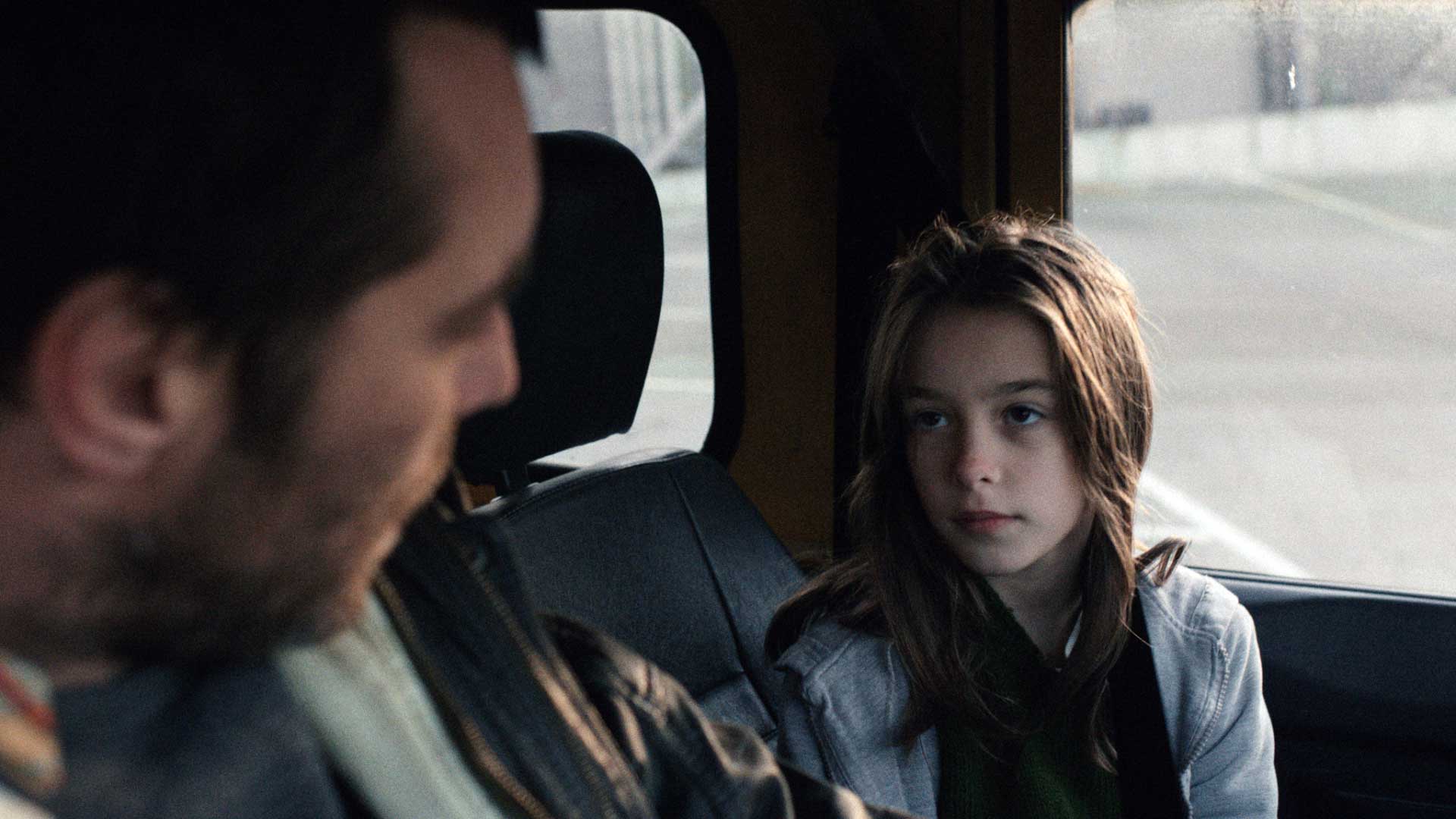As someone still adjusting to the ever-changing landscape of fatherhood, there’s no denying that stories centred around parent/child relationships are the ones most likely to resonate with me at the moment. Myrsini Aristidou’s touching 13-min short is the perfect embodiment of such a narrative. A film about understanding and acknowledgement, Semele manages to present the complex dynamics of this much explored relationship with a calculated restraint that purposefully puts the focus on emotion – without ever ramming it down your throat.
Centred around a daughter finding an excuse to visit her somewhat absent father in his workplace, Semele is a film sparse in dialogue, but strong in performance. The fragility and steely determination in Vasiliki Kokkoliadi’s performance as the titular Semele is undoubtedly the star of the show here, but Yannis Stankoglou’s performance as her stoic father adds the perfect contrast to her youthful innocence with his weathered brow and forlorn expression.
Easily written off as a stereotypical character (although Aristidou does admit “his character is somewhat motivated by a southern European ‘type’ of man”), it’s his journey, his slight transformation and that contrast to his daughter that perfectly underscores Semele’s pain. As the director explains, the father’s “inability to provide for his daughter, only accentuates the hurt that young Semele is experiencing”.
“Dramatizing doesn’t necessarily need to be dramatic”
We talked recently about subtlety being a great asset in filmmaking and although I’m still not sure it was the correct term in the context of that film, I feel the sentiment of that claim was an important one and one certainly worth considering when viewing Semele.
There is no easy reward from Aristidou’s film. It isn’t a short brimming with overly dramatic moments and there is no explosive climax. Instead you’re actually going to have to do some work and read the understated subtext here. Where in other films the father and daughter would scream, shout and then cry because of their situation, Aristidou instead paints a story of restraint and realism where a father’s gentle stroke of his daughter’s hair or the act of piece of paper being thrown out of a vehicle window, can have just as much (if not more) impact.
As Aristidou perfectly summarises – “dramatizing doesn’t necessarily need to be dramatic…the most dramatic moments in my life have occurred in undisturbed un-dramatized silence”.
With Semele produced by Short of the Week Alum Reinaldo Marcus Green (Stop & Stone Cars), Myrsini is now working on developing her first feature, which I’m assuming won’t be an action blockbuster. I look forward to seeing her bring a little more of this understated, yet emotive storytelling to the screen sometime soon.
We could certainly do with seeing a lot more restraint in the world of filmmaking at the moment.

 Rob Munday
Rob Munday